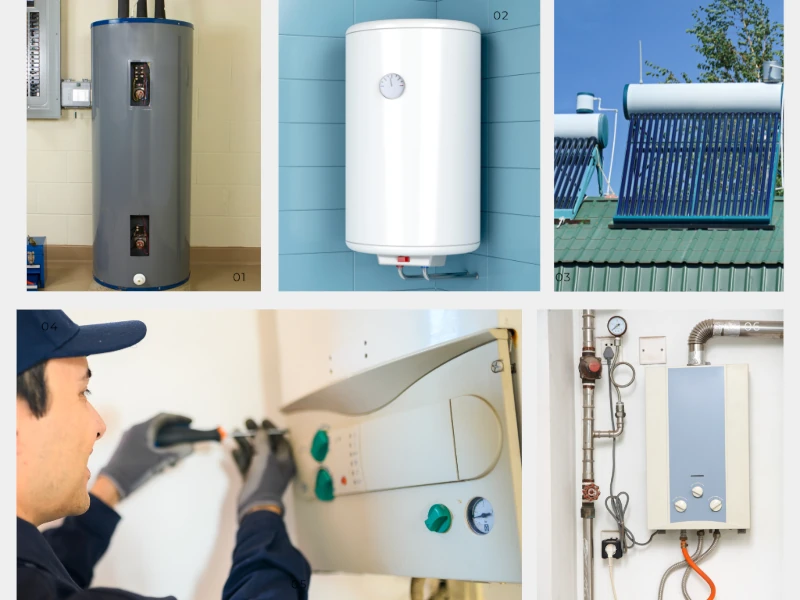While estimates vary, it is safe to say that if your hot water heater is more than 10 to 12 years old, it could be time to replace it. If you don’t know the age of your current hot water heater, the newer models may show the date on the installation label. If not, you can usually check it by finding the model and/or serial number. From there, you can check with the manufacturer.
You will probably find that if you’ve had your heater for a decade or more, much has changed over the years. Technological advances and government regulations dictate many of the changes.
Historically speaking
In ancient times, people relied on underground hot springs, or the heating of water in receptacles, after hauling cold water from a local body of water. Through the centuries, hot water remained a luxury for the very well-off.
That changed in the late 1800s with the inventions of Benjamin Waddy Maughan (1868) and later with Edwin Ruud (1889) in the form of the first water heaters. Ruud is credited with developing the first automatic storage water heater. In the early 1900s the well-to-do bought and installed hot water heaters in their homes. Yet, it was almost 100 years later that changes to the basic design pointed the way to new innovations in heating waters for our homes.
While a number of our home appliances have been scrutinized and regulated, like refrigerators, washing machines, dryers and even gas stoves, water heaters went along relatively undisturbed. That is until recently. As the design changes to water heaters in the 1990s finally caught the attention over the decades of the efficiency experts, mandates were created. Until April 30th of 2024, the last time efficiency standards were updated by the Department of Energy for residential water heaters, was in 2010.
Compliance will be required starting in 2029 for the new standards adopted today, which would result in over 50% of the newly manufactured electric storage water heaters to utilize heat pump technology, compared to 3% today.
For those of us living in the San Francisco Bay Area, the Bay Area Air Quality Management District (BAAQMD) mandate targeting water heaters goes into effect in 2027, two years ahead of the nationwide mandate.
“The rule amendments will apply only to new appliances, and do not mandate retrofitting of existing appliances.
2027 – only zero NOx water heaters can be sold or installed in the Bay Area.
2029 – only zero NOx furnaces can be sold or installed in the Bay Area.
2031 – only zero NOx large commercial water heaters can be sold or installed in the Bay Area.”
If you have a gas water heater and it breaks down, you can still get it repaired even after 2027. However, if it proves to be unrepairable after 2027, you will need to seek out one of the newer, more environmentally friendly and energy efficient options.
Don’t worry, alternatives are available.
Most of us have or are familiar with tank water heaters. Popular sizes include 40-, 50- and 55-gallon capacities. Newer on the market are tankless or on-demand water heaters. They don’t hold and keep the water heated at all times. Instead, they heat the water when you need it, as it passes through them.
Heat pump water heaters use electricity to circulate heat from the air or ground to heat water. This makes them highly efficient and cost effective.
It’s a brave new world of energy efficient options. If you discover your old water heater is about ready to retire, there are newer, more energy-efficient models to take its place. If you do your homework in advance, the transition into the future will be that much smoother.
If you are wondering about how to choose the right energy saving water heater for your family and lifestyle, AplosGroup would love to help.


